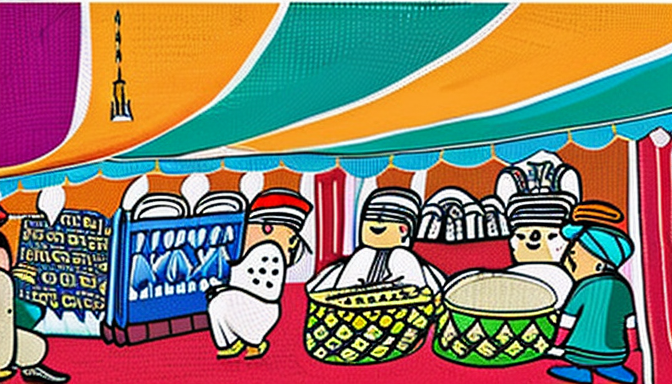Karachi, a bustling metropolis, is more than just a city; it’s a tapestry woven with stories. The oral storytelling tradition here is vibrant and alive, echoing the voices of those who lived through its history. Imagine sitting around a fire, listening to the tales of your grandparents. Each story is a window into the past, revealing not just events, but emotions, struggles, and triumphs.
In Karachi, storytellers are the cultural custodians. They carry the weight of history on their shoulders, sharing narratives that connect generations. These stories are not just entertainment; they are a way to preserve the values and identity of diverse communities. Have you ever thought about how a simple tale can shape a child’s understanding of their roots? It’s powerful!
The evolution of these narratives is fascinating. Over the years, Karachi has faced many changes—political shifts, social upheavals, and cultural exchanges. Each event has left its mark on the stories told. But the heart of storytelling remains unchanged. Today, as we listen to the voices of those who witnessed Karachi’s past firsthand, we capture not just memories but a legacy that deserves to be cherished.
So, the next time you hear a story, remember: it’s not just a tale. It’s a bridge to the past, connecting you to the rich history of Karachi. Let’s keep these stories alive!
The Role of Storytellers in Karachi
In Karachi, storytellers are more than just entertainers; they are the cultural custodians of the city. Imagine sitting around a fire, the air thick with anticipation, as a storyteller weaves tales that connect generations. These narratives are not just stories; they are the very fabric of Karachi’s identity. They carry the weight of history, the essence of traditions, and the values of diverse communities.
Every storyteller has a unique voice, a different style. They share memories that resonate deeply with listeners. It’s like holding a mirror to the past, reflecting the joys and struggles of the people. These stories often include:
- Local legends that have shaped the community.
- Personal anecdotes from elders who witnessed Karachi’s transformation.
- Fables that teach moral lessons and community values.
Listening to these tales is like taking a journey through time. Each narrative is a thread in the rich tapestry of Karachi’s culture. The stories evolve, adapting to the changing world while maintaining their core essence. They remind us of our shared humanity and the importance of community.
So, the next time you hear a story from a Karachiite, remember: you’re not just hearing words. You’re experiencing a legacy, a connection to the past that shapes our present and future.

The Evolution of Oral Narratives
Oral narratives in Karachi have a vibrant history, shaped by the city’s diverse cultures and experiences. These stories are not just tales; they are the very fabric of Karachi’s identity. They weave together the lives of its people, capturing their struggles and triumphs. Listening to stories from those who have witnessed Karachi’s past firsthand is like opening a window to a time long gone. Each story carries the weight of memories and legacy, making them invaluable.
As Karachi has evolved, so have its narratives. They adapt, reflecting the changes in society and the world around them. From the bustling markets to the quiet streets, storytellers draw inspiration from everyday life. They share tales of:
- Historical events that shaped the city
- Personal anecdotes that connect generations
- Folklore that embodies cultural values
In the past, these narratives were often shared around bonfires or in crowded homes, creating a communal experience. Today, they find new life in digital formats, yet the essence remains unchanged. The stories still resonate, reminding us of our roots. They teach us about resilience, love, and the human spirit. As we listen, we not only learn about Karachi but also about ourselves. The evolution of these narratives is a testament to the enduring power of storytelling in shaping our culture and community.
Frequently Asked Questions
- What is the significance of oral storytelling in Karachi?
Oral storytelling in Karachi is a vibrant tradition that preserves the rich history and diverse cultures of the city. It serves as a bridge connecting generations, allowing the community to maintain its identity and share values through engaging narratives.
- Who are the storytellers in Karachi?
Storytellers in Karachi are often seen as cultural custodians. They come from various backgrounds and use their skills to pass down stories that reflect the community’s experiences, struggles, and triumphs, fostering a deep sense of belonging among listeners.
- How have oral narratives evolved over time?
Oral narratives in Karachi have evolved by incorporating elements from historical events and societal changes. While the essence of storytelling remains intact, the themes and styles have adapted to resonate with contemporary audiences, making them relevant and relatable.
- Can anyone become a storyteller?
Absolutely! Anyone with a passion for sharing stories and connecting with others can become a storyteller. It’s all about embracing your unique voice and perspective, and the community is always eager to hear new tales!